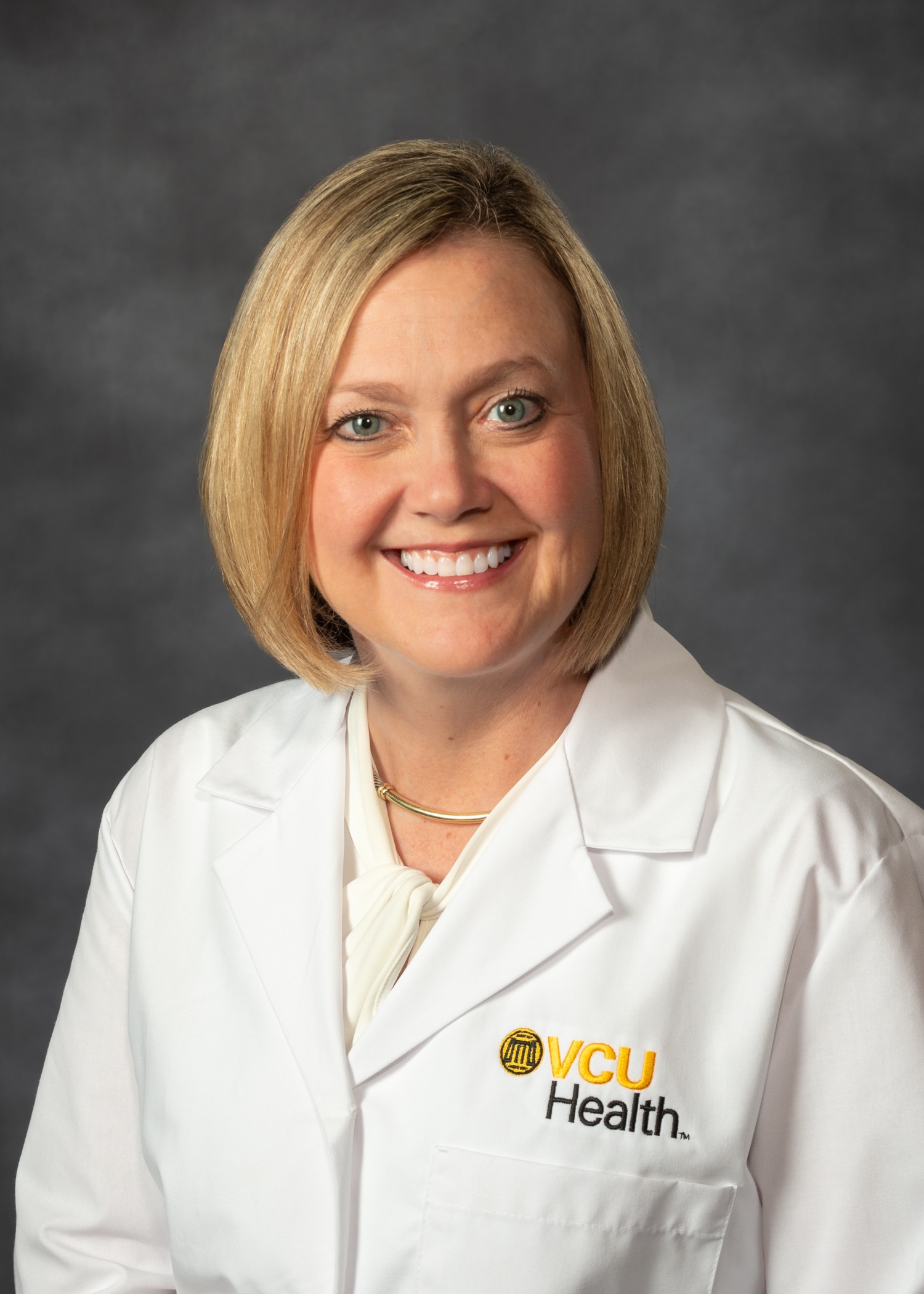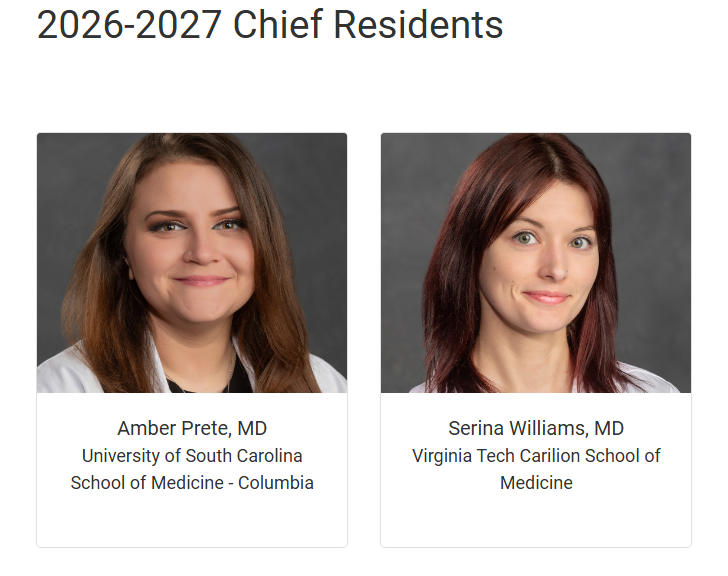Welcome from the Residency Director
 As an alumnus of the VCU Anatomic and Clinical Pathology residency program, I am committed to the success of future graduates from our program. As a program director, it is important to foster a collaborative and positive work environment that allows for respectful working relationships between other residents, faculty and support staff that take part in your educational program.
As an alumnus of the VCU Anatomic and Clinical Pathology residency program, I am committed to the success of future graduates from our program. As a program director, it is important to foster a collaborative and positive work environment that allows for respectful working relationships between other residents, faculty and support staff that take part in your educational program.
As an urban academic institution, the volume and variety of patients provide our trainees with a rich educational environment. We are home to the NIH-designated Massey Cancer Center, and we continue to see spectacular growth across our clinical services.
The Department of Pathology at VCU offers a wide range of training opportunities. Our faculty are known nationally for their leadership and service in their subspecialty practice, teaching, and scholarship, and form the heart our longstanding, fully accredited training programs. Our curriculum is targeted to meet the evolving needs of future pathologists, at a time of unprecedented evolution in diagnostic practice. In addition to our core residency training program in anatomic and clinical pathology (AP/CP), the Department supports many subspecialty fellowships including Cytopathology, Hematopathology, Molecular Genetics, Neuropathology, and Surgical Pathology. The nearby Central Office of the Chief Medical Examiner trains our residents in forensic pathology and serves as our primary site for our fellowship in Forensic Pathology. Electives are available both within the department and at the nearby Richmond VA Medical Center. Our department hosts a significant research division and projects are plentiful across our many laboratory sections.
Please feel free to contact us at pathgme@vcuhealth.org for any questions or requests for additional information about our program.
Dr. Kimberly W. Sanford
Welcome from the Chief Residents
 We have a tremendous residency program, with awesome training in both AP and CP. We are a medium-sized program with generally five residents in each of the four post-graduate years.
We have a tremendous residency program, with awesome training in both AP and CP. We are a medium-sized program with generally five residents in each of the four post-graduate years.
Our trainees take an active role as consultants to our clinical colleagues, but there are many unique opportunities in the curriculum for direct patient care responsibilities. The superficial fine needle aspiration service is run by residents on the Cytopathology rotation. We personally evaluate and consent patients and perform the aspiration procedures. Our department also oversees one of the most comprehensive apheresis clinics in Virginia. Patients from near and far present to our clinic for their treatment. As residents rotating on Transfusion Medicine, we actively evaluate and educate patients. Working with our Transfusion Medicine faculty, we manage patients needing apheresis services routinely and emergently.
None of our CP rotations involves solely passive learning. Our residents work with our medical technologists at the bench side-by-side, learning from them as they learn from us. We are frequently consulted by our clinical colleagues to assist with interpreting complicated test results and to decide which laboratory studies to pursue for patients suspected of having an exotic disease. We are active participants in meetings where we learn about quality control, quality assurance, and laboratory management.
In addition to the volume and diversity of surgical materials, our AP training offers a unique opportunity to trainees to render intraoperative (frozen section) diagnoses on their own, with fellow and faculty supervision as needed. Residents develop confidence in rendering intraoperative diagnoses, including evaluations in neuropathology and transplant pathology (liver and kidney). The program’s Surgical Pathology rotation offers a high volume and wide diversity of cases, covering both common and rare diseases across all subspecialties, ensuring residents gain comprehensive exposure. The Autopsy service is also robust, with residents having a dedicated month of experience working with the nearby Medical Examiner, further broadening their forensic pathology expertise. The attendings are highly regarded for their dedication to teaching and mentoring, fostering an environment that supports both academic and professional growth.
In addition to clinical training, residents are actively encouraged to participate in research projects across both AP and CP. Opportunities include case reports, case series, retrospective reviews, quality improvement initiatives, educational curriculum development, and cutting-edge fields like digital pathology and artificial intelligence. Recently residents have presented their work at national conferences, published peer-reviewed manuscripts, contributed book chapters, and received prestigious travel awards. Furthermore, residents are engaged in professional organizations at both the regional and national levels, with involvement in the College of American Pathologists (CAP) as committee member and Resident Delegates. This engagement highlights the program’s commitment to advocacy, community outreach, and active participation in the broader pathology community.
In short, training at VCU prepares trainees to be future laboratory directors and leaders in pathology.
Residency and Fellowship Training Programs
The Department of Pathology offers ACGME-accredited residency training in anatomic (AP), clinical (CP), or combined anatomic and clinical pathology (AP/CP). In addition, fellowship training is offered in cytopathology, hematopathology, molecular genetics, neuropathology, and surgical pathology. Fellowship training in forensic pathology is offered at the nearby Office of the Chief Medical Examiner.
The AP/CP program provides residents with the training needed to prepare for a career in academic or private practice. The program emphasizes the role of the pathologist as clinical consultant as well as diagnostician, educator, and manager.
One-on-one training experience during laboratory rotations is supplemented by a full schedule of didactic conferences, seminars, and journal clubs. Residents are actively involved in teaching medical students and technologists. Research opportunities are readily available and the department provides generous financial support for residents presenting research projects at national meetings.
Fellowship Programs
VCU Department of Pathology offers fellowship training in six specialties: Cytopathology, Hematopathology, Molecular Genetic Pathology, Neuropathology, Surgical Pathology, and Laboratory Genetics and Genomics.
Contacts
Lizz Stoke
Program Coordinator Senior, Pathology-GME
Barbara Herrera
Program Coordinator, Pathology-GME
Max Espinoza
Forensic Pathology Fellowship Coordinator, Pathology-GME
Email Address: PathGME@vcuhealth.org
VCU Department of Pathology
Box 980662
Richmond, VA 23298-0662